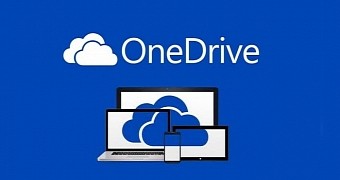A story that made the rounds yesterday revealed that OneDrive was painfully slow when Linux users attempted to connect to the service with their browsers, and naturally, it was just a matter of time until some people accused Microsoft of throttling performance on purpose.
But just like we’ve told you in our original coverage, this was all just a bug, and Microsoft confirmed in a statement we received a few minutes ago that the company investigated the issue and everything should be working correctly at this point.
“Some users may have experienced difficulty accessing OneDrive for Business on Linux. This issue has been fully resolved,” a Microsoft spokesperson told us.
Users were complaining that when connecting to OneDrive on Linux, it took ages for the service to open folders or to save changes to documents, while using the same connection to access the cloud storage service on Windows provided much faster performance.
Not limiting performance on purpose
Some users speculated that it was all just a user agent bug, as emulating a Windows browser restored normal performance, but others turned to more unlikely scenarios, accusing Microsoft of limiting the speed of its services on Linux systems just because it’s a Windows rival.
Of course, this wasn’t the case and Linux users should now be able to connect to OneDrive just like any Windows user, so in case you changed the user agent in your browser to deal with the performance limitation, you can now revert to the original settings.
For what it’s worth, Microsoft is very committed to making its services available on Linux with no limitation whatsoever, and the same is the case with Android and iOS, as the company is no longer trying to restrict access to its products to Windows exclusively.
This is one of the reasons the software giant is investing aggressively in mobile apps for rival platforms, despite causing frustration in the Windows community, which expected Microsoft to make its own operating systems a priority in the first place.

 14 DAY TRIAL //
14 DAY TRIAL //